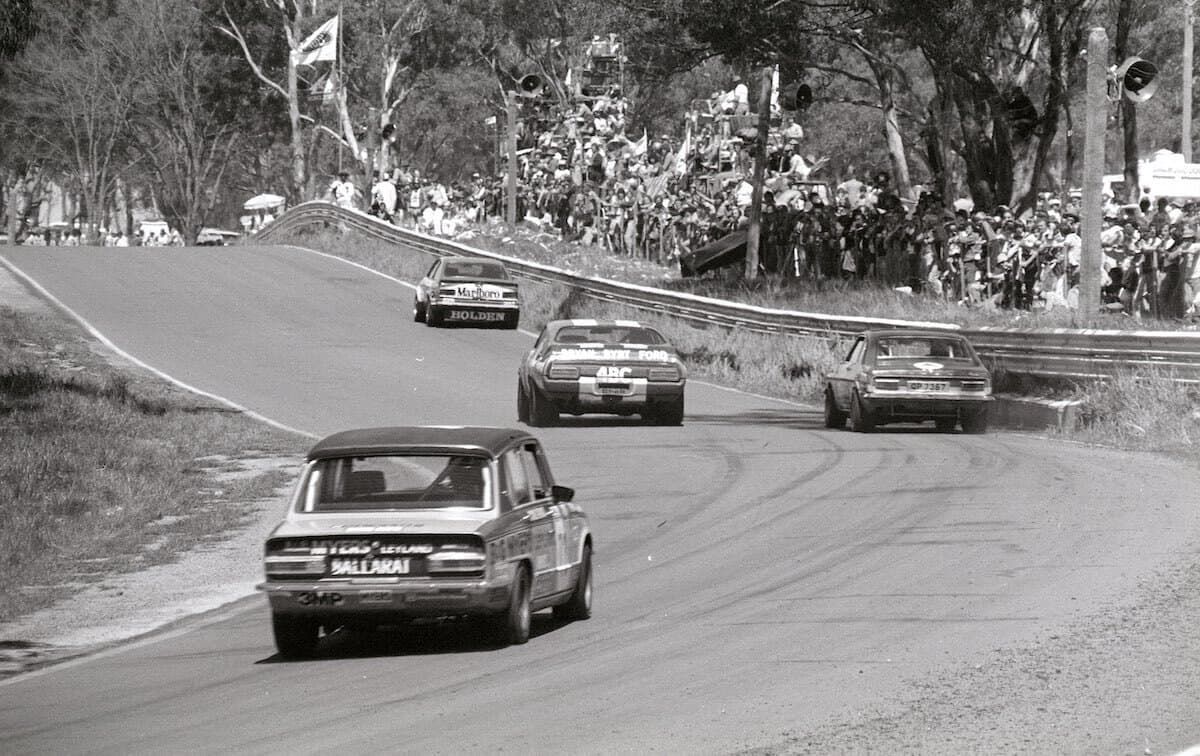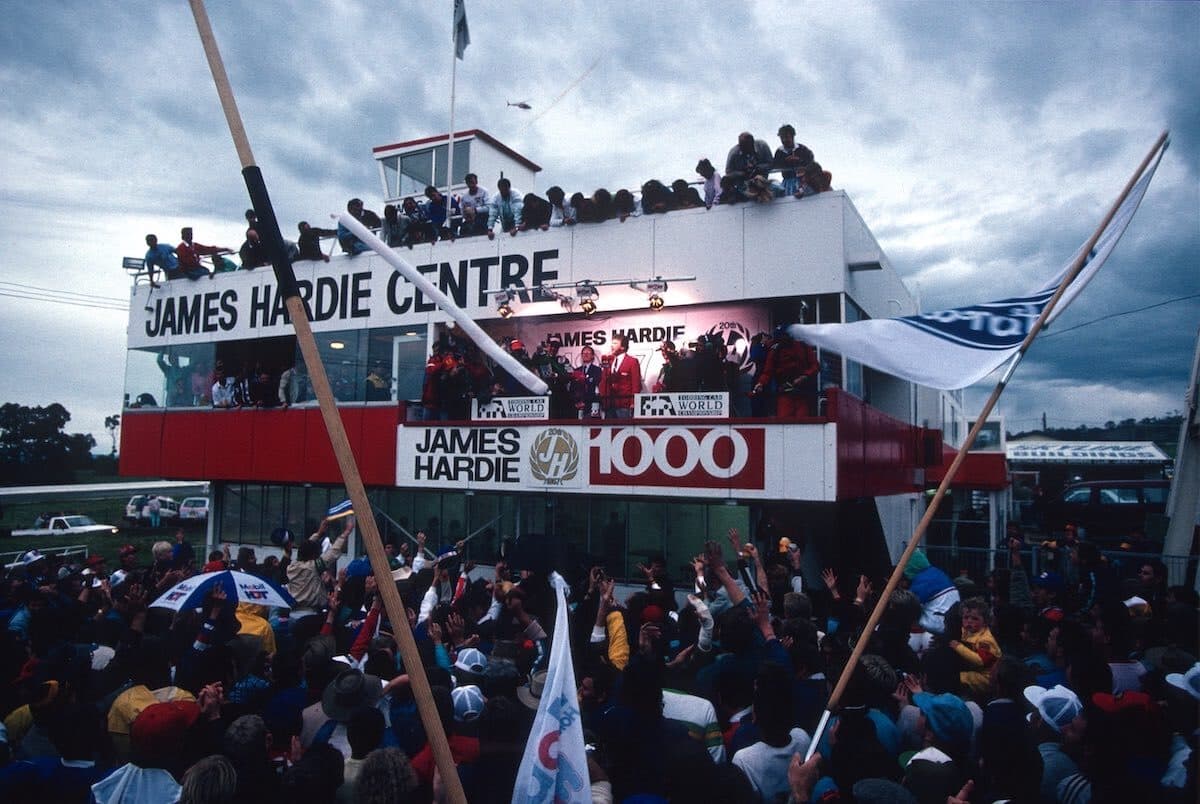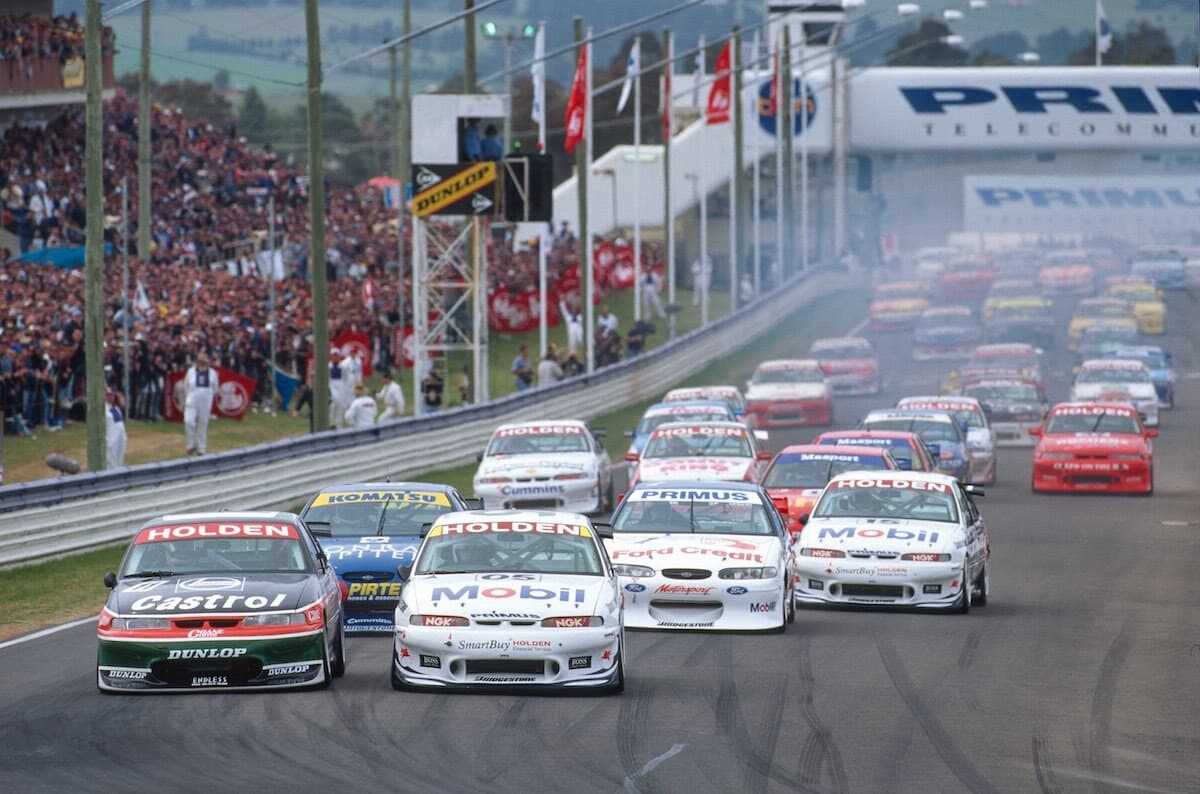60 years on: The bridge that led to Bathurst
This year, we celebrate the 60th anniversary of first Bathurst Great Race
How a bridge paved the way to the Great Race at Mount Panorama
The 1963 Armstrong 500 at Bathurst featured 57 starters, divided into four classes
History is full of sliding doors moments, the kind that make you go ‘if not for this, then what would have happened to that?'
The origin story of the Repco Bathurst 1000, which celebrates its 60th anniversary year in 2023, is a classic case in point.
Australia’s Great Race that has captivated the nation for six decades has its roots not at Bathurst, or even in New South Wales.
The brainchild of shock absorber manufacturer and inaugural race sponsor Armstrong, the first running of what became the Great Race took place at Phillip Island in southern Victoria in 1960.
Three editions of the 500-mile race for standard production cars occurred at the seaside venue, and the third caused such damage to the track that a full resurface was required.
As the bridge connecting Phillip Island to the mainland at San Remo was not strong enough to carry the necessary hot-mix bitumen equipment, the race needed a new home.
Keeping it in Victoria was logical and Sandown’s promoter made a compelling pitch, but it wanted to sell half the naming rights sponsorship to another brand.

Instead, the race went to Bathurst, where track organisers, the Australian Racing Drivers’ Club, had run their own six-hour production and sports car endurance event in 1962.
The 1963 Armstrong 500 at Bathurst featured 57 starters, divided into four classes based on purchase price, and was won by Harry Firth and Bob Jane in a Ford Cortina GT.
At the time it was just another race, but within five years it was evident that Bathurst had something special.
The allure of the Mountain and the way it tested driver and machine meant the October event soon became an annual pilgrimage for competitors and fans alike.
Car manufacturers wanted in on the action too and Ford and Holden were among those to produce high-performance ‘homologation special’ cars in order to win the Bathurst race.
This caused a public safety scare that resulted in the race adopting a new ruleset in 1973 called ‘Group C touring cars’, allowing for significantly more modifications.
Importantly, these rules aligned Bathurst with the Australian Touring Car Championship, and the Great Race – which was extended to 1000km in 1973 – has followed its evolution from there.

The iconic Group C ‘Big Bangers’ gave way to the turbocharged technology of international Group A from 1985, and then the home-grown V8 formula in 1993 that became Supercars.
Just like the cars, the Mountain too has evolved, from the early days of cliff edges, rock faces, wooden sleeper fences and trees growing at the track’s boundaries, to modern safety standards.
The only change to the iconic layout, though, was the addition of The Chase in 1987.
Introduced to slow cars on Conrod Straight following the death of competitor Mike Burgmann the previous year, the three new corners provided yet another thrilling challenge for drivers.
The 1987 race also marked the introduction of the Safety Car system, replacing the long-held practice of sending tilt-tray trucks to pick up stranded cars while cars raced by under local yellow flags.
Some of the starkest safety advances have come in pitlane.
A wall separating pit straight and the pitlane was installed in 1978. The chicane pit entry was built in 1984, while a pitlane speed limit was eventually introduced in 1996.

Amid the evolution of the Mountain and the machines that compete on it, the true history of Bathurst has belonged to the heroes and legends who have dedicated their careers to conquering it.
The late Peter Brock achieved the feat a stunning nine times in Holdens between 1972 and 1987, earning himself the ‘King of the Mountain’ moniker.
No other driver has shared such an affinity with Bathurst and its fans, and the trophy was named in Brock’s honour following his death in 2006.
That led to an emotional 2006 race won by Brock’s protégé, Craig Lowndes, and his co-driver Jamie Whincup – the start of a hat-trick of victories for the Triple Eight pair.
Many others have left their own mark on the Mountain.
Throw names like Allan Moffat, Dick Johnson, Jim Richards, Mark Skaife, Larry Perkins, Greg Murphy and more at any Bathurst fan, and the memories will come flooding in.
The pride and precision of Moffat as he led Ford to its finest hour on the Mountain; a 1-2 finish in 1977.

The devastation of Johnson after hitting a rock while leading the race in 1980, before the people of Australia donated money with which he built a car that won the race the next year.
The shock of ‘Gentleman Jim’ Richards calling the unruly crowd under the podium a ‘pack of arseholes’ after winning with Mark Skaife in a Nissan GT-R in 1992.
The ingenuity of Perkins, who designed an indestructible brake pad with which he could blast through for a flatout, last-to-first win in 1995.
The roar of Greg Murphy after clocking an unthinkable 2:06.8s ‘Lap of the Gods’ in the Top 10 Shootout in 2003.
Remembered too are those talented drivers who never won the race.
It’s a list headlined by Glenn Seton, whose Falcon suffered an engine failure while leading with just nine laps remaining in 1995, 30 years on from his father Barry’s Great Race win.
The true magic of the Mountain is you never know what’s coming next. The only guarantee is that it’ll be unforgettable.








